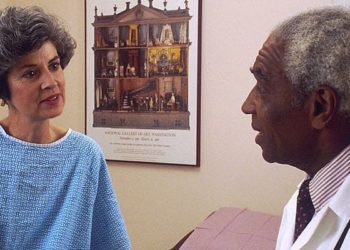Positive childhood experiences are associated with better adult health
1. In a nationally representative sample, positive childhood experiences were associated with a reduced risk of poor health in adulthood, even after adjusting for adverse childhood experiences.
2. The benefits of positive childhood experiences on adult health were greatest among those who did not have any adverse childhood experiences.
Evidence Rating Level: 2 (Good)
Study Rundown: Since the turn of the 21st century, adverse childhood experiences (ACEs) have been linked to worse adult health outcomes. However, limited research has explored the role of positive childhood experiences (PCEs). Using a nationally representative sample of 7946 adults, this study investigated the association between PCEs and health, while controlling for ACEs. Overall, the authors found a dose-dependent relationship between PCEs and adult self-reported health status, physical conditions, and psychiatric conditions, such that a greater number of positive experiences in childhood was associated with better lifelong health. The benefits of PCEs on adult health were greatest among those who did not have any ACEs. Strengths of this study include the large, nationally representative sample, as well as careful and comprehensive definitions of both PCEs and ACEs, and the utilization of a variety of modeling techniques. However, given that the study relies on cross-sectional data, there is a risk of residual confounding, and no definitive causal conclusions can be drawn. Specifically, retrospective recall of childhood experiences and the use of age at diagnosis as a proxy for the age of symptom onset are likely sources of bias. Overall, this study suggests that while efforts to reduce ACE exposure are still essential, interventions to promote PCEs among children – including good communication and healthy relationships with parents, happiness at school, comfort with friends, and living in socially cohesive neighborhoods – may also improve health across the life course.
Click to read the study in Pediatrics
Relevant Reading: Responding to ACEs with HOPE: Health Outcomes from Positive Experiences
In-Depth [cross-sectional study]: This study drew data from the 2017 wave of the Panel Study of Income Dynamics and its Child Retrospective Circumstances Study supplement, which was administered to the same participants in 2013. By combining these datasets, the authors obtained a sample of 7946 adults (mean age 53.2 years, 52.9% female), of which more than half reported 5-6 PCEs, a third reported 3-4 PCEs, and the remaining 16.3% reported 0-2 PCEs. Conversely, a third reported experiencing no ACEs, just under half reported experiencing 1-2 ACEs, and the remaining 21.0% reported experiencing 3 or more ACEs. For the purposes of this study, PCEs and ACEs were both defined comprehensively. PCE scores were assigned based on adult retrospective reports of their relationship with their parents during childhood, happiness at school, comfort with friends, and sense of social cohesion in their neighborhood; possible scores ranged from 0-6. ACE scores were assigned based on adult retrospective reports of parent mental illness, parent substance use disorder, parent intimate partner violence, parent divorce/separation, physical/sexual/emotional abuse, and neglect; participants were assigned into three categories: 0, 1-2, or 3+ ACEs. Multivariable logistic regression models with and without adjustment for ACEs were used to explore the association between PCE score and adult overall health, psychiatric conditions, and physical health conditions. A dose-dependent relationship was identified, such that a greater number of PCEs was associated with improved adult health in all categories, even when adjusting for ACEs. For example, adults with 5-6 PCEs had 75% (CI: 0.58–0.93) the risk of poor overall health and adults with 3-4 PCEs had 94% (CI: 0.71–1.16) the risk of poor overall health compared to those with 0-2 PCEs. An interaction model was also run between PCEs and ACEs, which showed that the benefits of PCEs on adult health were greatest among children with an ACE score of zero. Finally, cox proportional hazard models were run, which largely recapitulated the findings of the multivariable logistic regression models, demonstrating that the onset of various forms of adult illness occurred at older ages for adults who had a greater number of PCEs.
Image: PD
©2023 2 Minute Medicine, Inc. All rights reserved. No works may be reproduced without expressed written consent from 2 Minute Medicine, Inc. Inquire about licensing here. No article should be construed as medical advice and is not intended as such by the authors or by 2 Minute Medicine, Inc.









